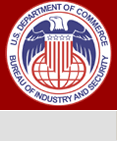Where Industry and Security Intersect
What's New | Sitemap | Search


Mr. Minister, Mr. Ambassador, Chairman Nair, distinguished guests, ladies, and gentlemen. Thank you for your warm welcome. I am delighted to be participating in this historic conference that marks over 40 years of space collaboration between the United States and India . I am also pleased to be back once again in Bangalore . This is my third visit in the last two years to this beautiful city. Bangalore is the high-technology capital of India , the cradle of India ’s space program, and the ideal setting for this Conference.
I would like to thank you, Chairman Nair, and your team at the Indian Space Research Organization (ISRO), for co-sponsoring this Conference. I know it is the result of a lot of hard work by the Conference co-organizers — the American Institute of Aeronautics and Astronautics, and the Astronautical Society of India, in cooperation with our National Aeronautics and Space Administration (known as NASA), and National Oceanic and Atmospheric Administration (known as NOAA). This Conference also stands as a testament to the close working relationship among ISRO, India ’s Department of Space, the U.S. Department of State, and the Indo-U.S. Science and Technology Forum.
I should note, in addition, the significant and high level of participation in this Conference by my government — in which we have not only our U.S. Ambassador to India here, but four senior representatives from Washington , D.C. Tomorrow, during the opening plenary session, we will hear from Mr. Frederick Gregory, the Deputy Administrator of NASA, on cooperative space activities and NASA’s vision for space exploration. We will also hear from General John Kelly, the Deputy Under Secretary of NOAA, on international efforts with regard to sustainable development and public safety. And we will hear from Mr. Lee Morin, Deputy Assistant Secretary of State, on expanding scientific cooperation and promoting human development.
The participation of all of us indicates the importance that we attach to this event and to Indo-U.S. cooperative efforts. Indeed, it is my fervent hope, as well as that of my colleagues, that this Conference will mark the beginning of extensive space cooperation in the 21 st century between our two nations.
I would also like to welcome delegates from the scientific and space applications fraternity, and the many representatives of industry from India and the United States who have joined us here today, including those who have generously co-sponsored this Conference. Your presence attests to the strength of the U.S.-Indian commercial relationship. All of us in this room wish to see industry-to-industry efforts strengthen and grow. With almost 200 delegates from the United States, and nearly 500 delegates overall, the participants in this Conference should be able to explore the full range of potential opportunities for cooperation, from earth observation science, to satellite communications technology and applications, to natural hazard and disaster research. Together, we will seek to identify policies for expanded and sustained commercial activities in space that will change the face of our bilateral space cooperation.
I am not sure that I have ever been asked previously to speak briefly on Day 1 of a conference and then to speak again to the same audience on Day 2. So, rather than repeat tomorrow what I will say today, I thought I would simply give you now a short preview — or teaser — of my remarks tomorrow. I hope that this will persuade you to return to hear me, though I recognize that it may lead some of you to sleep late in your hotel room. I guess I will take my chances.
In my position at the U.S. Department of Commerce, I am responsible for issues where business and security intersect. This involves a range of activities from monitoring the viability of the U.S. industrial base, to investigating imports and foreign acquisitions that affect U.S. national security, to assisting U.S. industry to comply with international arms control agreements. Perhaps my biggest responsibility, however, is regulating the export of sophisticated U.S. dual-use technology, known as “dual-use” because it has both commercial and military applications. I have had the opportunity to work extensively with the Government of India and Indian industry during the past three years on high-technology trade issues, including such trade affecting the Indian Space Research Organization.
Tomorrow, I will share with you my thoughts on U.S.-Indian space cooperation and, in particular, will review in detail the trends and opportunities in our high-technology trade relationship. I think you will find that we have a very good story to tell — and one that hopefully will correct some misperceptions that may still exist. As I will demonstrate tomorrow, U.S. licensing practice since the lifting of sanctions in September 2001 has led to a dramatic and continuing increase in the volume and value of exports of sophisticated U.S. high-technology items to India . These positive and noteworthy trends have also occurred with regard to space-related trade. These trends reflect our growing strategic partnership with India , and indicate the potential for even greater levels of bilateral high-technology trade.
So, I hope you will come back tomorrow morning to hear the full story — and my friends in the media will be prepared to take good notes!
Again, I am delighted to be here at the opening of this historic gathering, and I extend my best wishes for a most successful Conference.
Thank you very much.